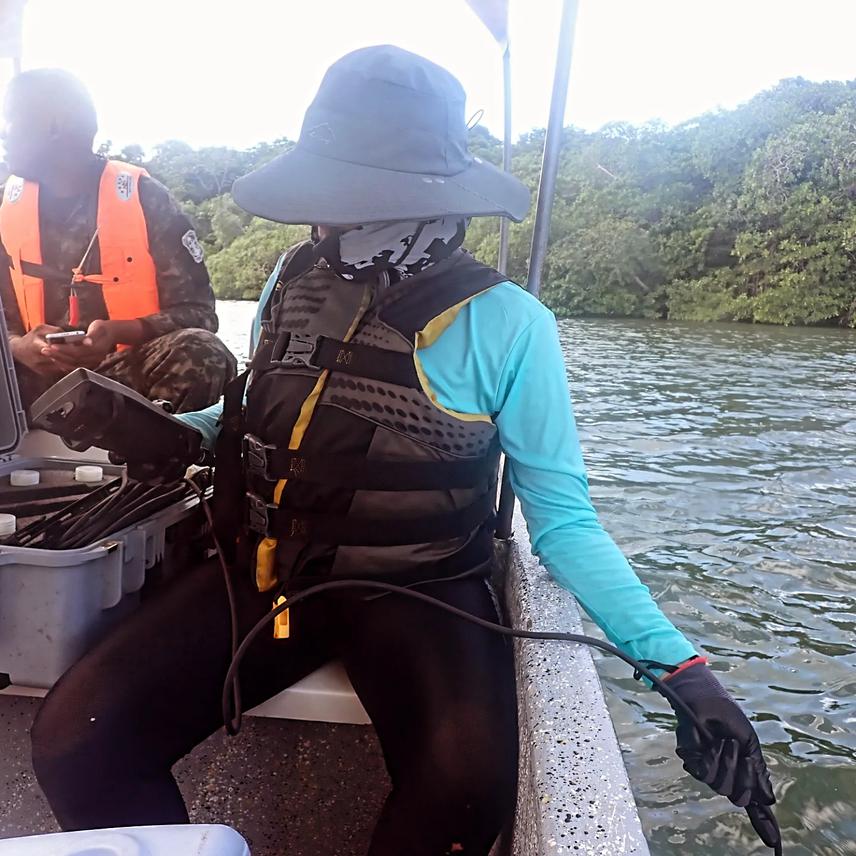Mayra Lizzeth Núñez Vallecillo
This project aims to explore the intricate connections between terrestrial, freshwater, and marine ecosystems in the Honduran portion of the Mesoamerican Reef System (MAR-H). The primary focus is on how land use changes, particularly the conversion of natural areas to agricultural land, influence the quality of water and the dynamics of the coastal and marine ecosystems. As rivers discharge increased loads of organic matter and nutrients into the coastal waters, the project examines the subsequent effects on the composition and structure of trophic networks, biodiversity, and the overall functioning of the reef system.

Measurement of water quality parameters in Trujillo Bay, Honduran Caribbean. ©Paolo Guardiola.
Using stable isotope analysis (carbon, nitrogen, and sulfur) and otolith microchemistry, the project investigates the trophic interactions and movement patterns of key species such as common snook (Centropomus undecimalis), lane snapper (Lutjanus synagris), and lettuce coral (Agaricia tenuifolia). These methods allow us to track nutrient pathways and determine the extent of connectivity between different ecosystems, offering insights into how land-based activities impact marine biodiversity and marine ecosystem.
The project’s findings will be critical for informing sustainable management practices, with a focus on maintaining the health of the MAR-H meta-ecosystem and ensuring the resilience of fisheries that are vital for the livelihoods of local communities. By enhancing our understanding of how land-sea interactions drive changes in marine environments, the project also aims to contribute to the broader goals of marine conservation and sustainable coastal development in the region.
Header: Coral sample collection for stable isotope analysis at the Barras Cuero y Salado Wildlife Refuge, Honduran Caribbean. ©Claudia Guerrero.